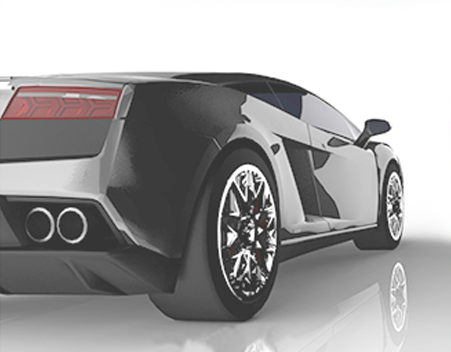interview tips
Supporting Your Career
Interviews can sometimes be a bit daunting, especially if you’re a bit out of practice… The best way to handle the situation is to be prepared. The interviewer will be evaluating the interviewee on three main criteria:
- Are you able to do the job?
- Are you willing to put in the effort to make the job a success?
- Are you manageable?
Listed below are some useful tips and guidelines in expecting the unexpected.
Dress to impress
First impressions are crucial, smart business dress is essential for any interview, smile and offer a firm handshake.
Research
It is vital that you have done your homework, research the company website or contact the company in advance and ask the receptionist to send you a brochure. Refer to any knowledge that is relevant in the interview.
possible questions they might ask
How do you feel about your progress to date?
Be positive; make the interviewer believe that you want to work for their company and that you are confident of your future career path with them. Tell them you are flexible in attitude and willing to learn new tasks.
What would you like to be doing in five years from now?
The safe answer is to show your desire to progress as far as you can, by being a successful team player and acting in a professional manner at all times. This question gives you the opportunity to ask what future career path the company can offer you.
What are your biggest achievements?
Keep your answer work related. Be prepared with 2 or 3 examples of where you feel you contributed towards a success or worked well as part of a successful team.
Tell me about yourself?
Do not ramble, again try to keep the majority of your conversation work related, however, this is also an opportunity to show your personal side, but keep the information general and light hearted!
What are your strengths and weaknesses?
Be prepared for this one, hi-light one or two professional attributes, for example pride in your work, extremely organised, reliable etc. Try to change any weaknesses into positives i.e. I set myself tough personal objectives and can sometimes get frustrated if I do not complete them on time. Convince your interviewer that you will turn weaknesses into strengths and are keen to learn new skills.
What are you looking for in your next role?
You are looking for a role that enables you to make an immediate contribution based on your experience and skills. The key word here is ‘contribution’ what skills you can bring to the company.
Why do you want to leave your current/last position?
Have acceptable reasons for leaving every job you have held, if not try one of the most suitable from the following:
- The company did not offer you the opportunity for future progression
- The journey to work was unreasonably long
- You felt you were underpaid for your skills & experience
- You were unsure with regards to the financial stability of the company
- You wanted to work for a company with a better reputation within the industry
possible questions you might ask
Interviews are a two way process, it is just as important for you to ask questions about the company as it is for them to ask questions about you. Again be prepared, do not feel afraid to take a pen and paper with you and have a list of prepared questions. The chances are some of them may have been answered in the interview process but it is still important to let your future employer know you have taken the time to prepare.
- What are the reasons for this vacancy?
- What happened to the last person in the role?
- Who will you report to?
- When will you get an opportunity to meet them?
- What would a typical day in the role involve?
- What are the realistic chances for future career progression?
- What skills and attributes are most required to get ahead in the company?
- Who do you feel will be the company’s main competitors over the next few years?
- Is there a written job description; if so is it possible to have a copy?
- If successful today what will the next stage be or when would you like me to start?
At the end of the interview don’t forget to thank your interviewer for their time, if you are interested in the role let them know.
competency based interviews
In a competency based interview you are required to give an example of a work situation or task which led you to take a certain course of action. Your interviewer will use probing questions to determine the course of action you took, the changes which were created by those actions and the effect of those actions on others. The aim of the interview is to substantiate that you have the key skills essential for the role, i.e. for a position in management they could be looking for demonstrable track record of success in people development, decision making etc. In order to prepare for a competency based interview, ensure you read the job description and person specification in detail to assess where you can match your CV to their requirements, and decide the core competencies for the role. The STAR model can be used to answer the question “Give me an example of…”
- S = SITUATION what was the situation when you arrived at the task
- T = TASK what was the task, define the task and measurables
- A = ACTION what was your action and your direction
- R = RESULT what was the resulting outcome make sure this is a quantifiable tangible result
Mastering the Telephone Interview
Nearly every company uses an initial telephone interview in their process so it’s important to know what you can do, to ensure you perform well during the telephone interview process. Here are a few ways to improve your chances of success…
Use a land line
This doesn’t take much explaining. Interviews are hard to come by. The last thing you want to do is drop the . . . hello. Hello? Can you hear me? I think you get the point – and don’t use a speaker phone.
Dress for success
Go through the normal routine you would have followed if this had happened to be a face to face interview. For instance, if you expect the call at 10am., don’t roll out of bed at 9:15 and expect to be ready for the call. Do a bit of studying over a light breakfast, shower, and dress as if you were going to a real interview. OK, you can lose the jacket and tie, but look presentable. It sounds silly but taking these steps will trick your body into thinking it needs to be at the top of its game.
Talk with your hands
Allow yourself to use your hands while talking. Studies show that your brain can think of the exact words you want to use more easily when you allow your hands to move freely as you would in normal conversation.
Smile
When someone smiles when you’re talking on the phone, you can hear it. So will your interviewer.
Hydrate
Keep some water handy. You don’t want to keep the interviewer waiting if you get choked up or your mouth gets dry (and it will). By the way, “excuse me, I need to take a drink of water” is always an acceptable way to stall if you need a few extra seconds to think.
Check for agreement
The job interview is a sale and the product is you. There is one question that is your best friend and it is, “Did I answer your question completely?” Questions like this give the interviewer the opportunity to ask more questions of you and take away the opportunity for him/her to make excuses as to why you’re not a good fit.
Mind your posture
Sit up straight in a quiet place with all your notes in front of you OR (even better) lay your notes out on a desk or large workspace and stand up while you talk. You’ll also use your hands more if you’re standing up.
Control. Your. Cadence.
When we’re nervous, we have a tendency to talk fast. Make a concerted effort to slow your speech and enunciate. You’re interviewer will appreciate your articulation and your brain will have more time to think about the right things to say.
Psychometric Testing
Psychometric testing is used to test numeracy, verbal reasoning and assess your personality type under timed conditions. For further information and the opportunity to practise these types of tests visit www.shl.com










